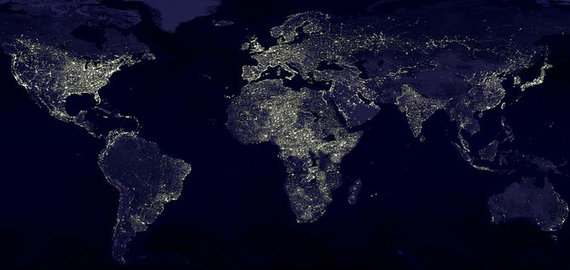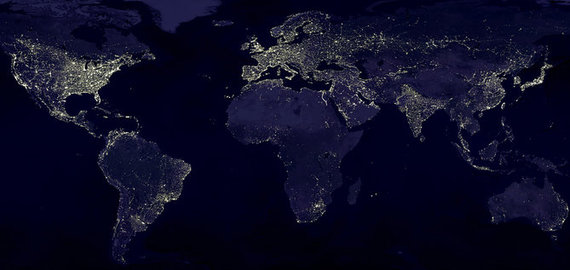By Derreck Kayongo
Remember those iconic photographs of African children studying under streetlights because they didn't have electricity at home, or stories of women giving birth in the dark because hospitals didn't have lights? They were tragic and unfortunately true. They are much less frequent today than they were when I was born in Uganda. That, in part, is due to the visionary leadership of the U.S. Congress, which 10 years ago today passed the Electrify Africa Act, an important piece of legislation that provided needed financing for electrification projects in Africa.
That U.S. leadership has been a catalyst in driving economic growth and development in Africa. It is one of the reasons why today, instead of talking about an "Africa Rising", we can speak of an Africa Risen.
The Electrify Africa Act has had a profound impact in Africa. It helped make business environments more stable, predictable and friendly to entrepreneurs, sparking a surge in economic growth as trade expanded between African and other countries, including the United States.
Vaccination rates increased as health clinics gained access to power to keep vaccines refrigerated, resulting in a significant reduction in the number of cases of preventable diseases. School attendance surged as classrooms became well-lit, safe spaces for learning and intellectual growth and children were able to finish their homework in the safety of their own homes, rather than under a streetlamp.
As a result of all this, poverty rates have declined, making possible the global goal of eradicating extreme poverty by 2030. In the last decade, the African continent has witnessed a surge in democracy and citizen participation as autocrats have lost the ability to control and censor the flow of information. Greater access to electricity made accessing the global information exchange - i.e. the Internet - far easier and cost effective. Terrorist organizations like Boko Haram and Al-Shabab have been undermined as governments have become more accountable to their people and consequently allocated public spending where it was needed most: improved social service delivery.
Farmers have increased their crop-yields due to proper refrigeration and storage, and are now able to make more money because they can get more of their products to market. Fewer people are without food. More homes now have clean cooking technology, and as a result millions of people - particularly women and children - are no longer suffering and dying from preventable lung diseases.
Africans today are thriving, bolstered in part by the supportive role the United States played in catalyzing the emergence of a stronger, more prosperous, stable and democratic Africa. Untold numbers of business owners are now more profitable because they are no longer spending nearly 40 percent of their profits on maintaining and running generators to supplement their access to the electrical grid. Millions of lives have been improved as a result, American and African businesses are friends and trading partners, and the national security of the United States and African countries has been strengthened.
As we commemorate the landmark signing of the Electrify Africa Act 10 years ago today, let us pause for a moment to reflect on what we have learned: to empower a continent and its people, you must first give them power.
---
April Fools.
This story is not true, but it could be. While the U.S. Congress did not pass the (then non-existent) Electrify Africa legislation 10 years ago, it has the opportunity to do so in 2015. Introducing and passing this critical legislation would help U.S. companies and others build needed energy infrastructure in some of the world's poorest places, Congress could help provide electricity to some of the 1.2 billion people around the world that do not currently have access to safe and reliable electricity.
Congress should act immediately to pass the Electrify Africa Act, the first step toward making the fictional story above a reality. Let's electrify a continent and make sure that people everywhere have the opportunity to access the everyday things that most of us have never lived without.
Derreck Kayongo is the founder of the Global Soap Project and a Ugandan child refugee who has become an innovative leader for international social change. He was named a CNN Top 10 Hero in 2011.


